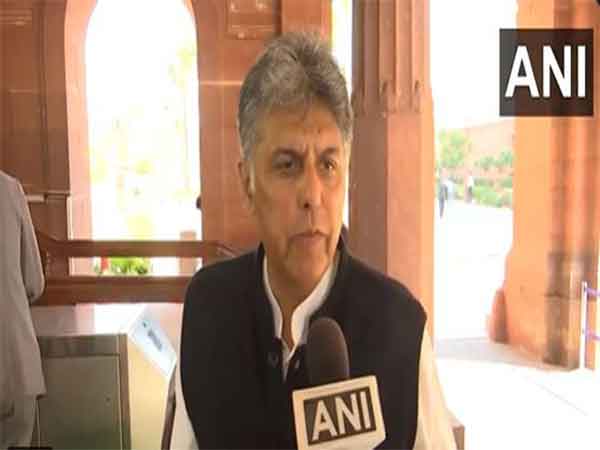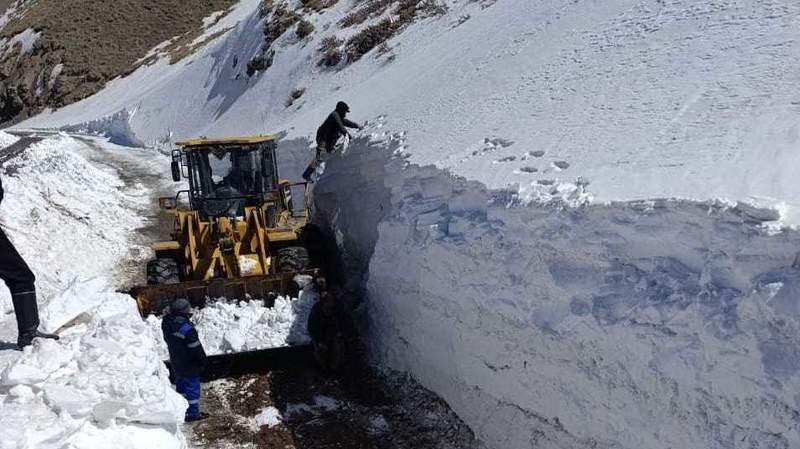
A new excise policy for the national capital is in the works, Delhi chief minister Rekha Gupta said on Wednesday, adding that the “biggest financial asset” for her government will be its ability to work in tandem with the Centre. In an interview with HT, she discussed how her administration plans to fulfil its poll promises and the challenges it faces in addressing the city’s infrastructural needs. Edited excerpts : It has been quite an adventurous experience.
I was entrusted with a new responsibility and had the opportunity to work on the Delhi Budget 2025-26. The faith people have in me has become my strength, and the trust of our leadership [in me] motivates me to work harder. The main challenge has been tackling the circumstances left behind by the previous AAP-led government.

People’s expectations from us are high, but the situation we inherited is difficult. We need to both meet expectations and improve the circumstances. The coordination between the Centre and the state government is the biggest financial asset for any state.
The previous government refused to work in sync with the Centre, derailing financial opportunities that could have been utilised. Funds were offered by the Centre, but the previous government was unwilling to utilise them — take, for instance, the Ayushman Yojana. The state could have received ₹ 1,500 crore, but they didn’t take it.
This is the difference. They didn’t want to use the centrally sponsored schemes under which funds are given under different heads to the state government, such as the PM Awas Yojana, Ayushman Yojana. Similarly, centrally sponsored schemes like the PM Awas Yojana and Swachh Bharat Mission were ignored.
For instance, 80% of landfill clearance costs could have been covered by the Swachh Bharat Mission, but they refused to act. ₹ 8,000 crore was allocated for cleaning the Yamuna, but no progress was made. This disbalancing act caused significant setbacks for the previous government.
Now, with proper coordination, we have been able to draft a large-scale budget that will drive Delhi’s development. These allegations are premature. When a government takes office, budget allocations must be made, schemes designed, rules framed, registrations completed, and scrutiny carried out.
This isn’t a one-time scheme with a lump sum payout—we have to ensure a sustainable framework so that benefits reach only eligible recipients. The AAP government often announced schemes on paper but couldn’t sustain them beyond a year. We don’t want to make the same mistake.
We promised support for poor women, so we must define the eligibility criteria carefully to prevent misuse, like what happens in EWS schemes where benefits sometimes go to ineligible people. Implementation takes time, but we will honour all our commitments. That is exactly what we need to determine.
We have to fix the terms and conditions for this, and we have to figure out the framework so genuine candidates benefit. As for the accusations, the AAP made similar promises in Punjab, yet after three years, they haven’t implemented them. This criticism is their political game, and it holds no weight anymore.
They should reflect on their own record — they promised free Wi-Fi in Delhi 10 years ago. Tell me, which part of Delhi gets free Wi-Fi? They ran their government as they pleased. We, on the other hand, will continue existing schemes while introducing new ones.
It will be done soon. We cannot set a rigid timeline. The Assembly session just concluded, and we are only a month into governance.
You cannot expect a month-old government to [implement schemes this quick]. The fiscal year starts April 1, and we have just presented the budget — this was a massive task. We need to assess the opening balance and determine how many beneficiaries we can support while maintaining financial stability.
We cannot stop paying salaries to fund this scheme; we must balance both priorities. It is challenging. We need to fund subsidies and welfare schemes while also investing in infrastructure.
Capital expenditure is essential. The previous government left hospital projects incomplete, failed to build schools and colleges, and didn’t pay salaries in 12 Delhi government colleges. They governed as though they were unaccountable.
We, however, will ensure salaries are paid, infrastructure is developed, and governance is efficient across all sectors. When you don’t have basic necessities like roti, you don’t ask for pudding. First, we must address fundamental needs — roads, drainage, and sewer systems.
People aren’t asking for grand new projects; they want their drains cleaned, their sewer lines fixed, and access to clean drinking water. Even in the capital of India, access to potable water is a problem. Before planning new infrastructure like stadiums or bus terminals, we must first fix the existing system.
Everything was mentioned in the budget. Every time I mentioned the name of Prime Minister Narendra Modi ji..
. it wasn’t just about his name — his leadership ensures governance across multiple states. Delhi is a confluence of people from so many states.
We celebrated Odisha Day because 1.2 million Odias live here, and Rajasthan Day because 2.5 million Rajasthani residents call Delhi home.
When the CMs of Odisha and Delhi share a stage, people feel reassured that their interests are safeguarded in both states. This synergy is possible because of Modi’s leadership. “Viksit Bharat” and “Viksit Delhi” are parallel goals.
Yes. For any matter that we need the support of NCR states – transport, migration, highways, metro connectivity and water supply – we will seek their cooperation. Thousands of people commute between Delhi and NCR daily.
Coordination with states like Haryana, UP, and Uttarakhand will help improve connectivity, safety, and security. Our work has already started. The people of this city have already noticed that the work on Yamuna cleaning has already started.
We are bound to fulfil commitments we have made under the leadership of PM Narendra Modi. Today, I have laid out the plan on air pollution [in the assembly]. The previous government left us with a white elephant.
Crores of taxpayer money has already been spent, so we must ensure optimal utilisation or recover costs. Various ideas have been proposed—some suggest turning it into a state guest house, others propose selling it, while some recommend converting it into a museum. We are evaluating all options.
These funds will primarily support capital expenditure. Money is allocated under specific heads, such as Ayushman Yojana and Pradhan Mantri Awas Yojana, and will be used accordingly. Yes, of course.
We are working on a new excise policy. We are working on it right now, but it is a work in progress. We are just a month-old government, so it’s too early to disclose specifics.
Other policies, such as industrial and warehouse policies, are also being developed. These are exaggerated stories. Anyone can turn off the power, light a candle, and claim a blackout.
Who verifies these claims? Should we station a CAG auditor at their homes? This is just political drama by the AAP. Our minister, Ashish Sood, has already explained that summer preparation requires servicing and maintenance. There will be no power cuts in the summer.
We will ensure optimal utilisation and uninterrupted power supply..











